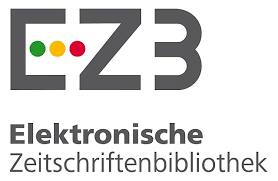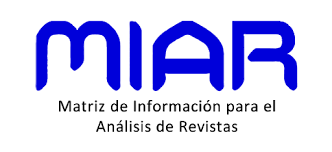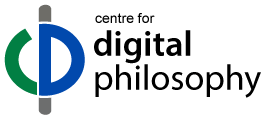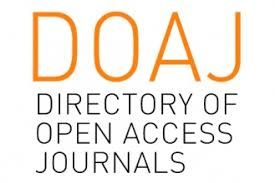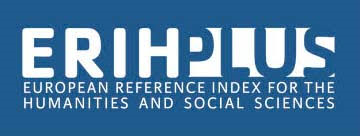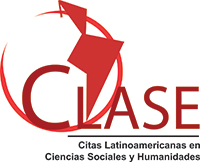Contra as fake news
Repensando a estratégia da abstinência de notícias
DOI:
https://doi.org/10.15448/1984-6746.2024.1.45041Palavras-chave:
abstinência de notícias, notícias falsas, ignorância, suspensão de juízo, informaçãoResumo
Em seu artigo “Uma defesa epistêmica da abstinência de notícias” (2021), Sven Bernecker defende uma abordagem epistêmica radical para combater o consumo de notícias falsas. Ele sugere que um sujeito pode ser propositalmente justificado ao ignorar as notícias em circunstâncias específicas. Este artigo examina criticamente a tese proposta por Bernecker e levanta questões importantes que minam a sua plausibilidade. Em seguida, uma revisão da teoria da abstinência de notícias é proposta. Argumenta-se que a atitude original de ignorar as notícias é epistemicamente inadequada e deveria ser substituída pela atitude mais adequada de suspender o juízo. Esse ajuste permite manter a ideia original de Bernecker de uma estratégia epistêmica de defesa contra o consumo de notícias falsas e, ao mesmo tempo, evitar os problemas que lhe estão associados.
Downloads
Referências
AHLSTROM-VIJ, K., GRIMM, S. R. ‘Getting it Right.’ Philosophical Studies. v. 166, no. 2, p. 329–47, 2013. DOI: https://doi.org/10.1007/s11098-012-0038-x
AHLSTROM-VIJ, K.; DUNN, J. (eds). Epistemic Consequentialism. Oxford: Oxford University Press, 2018. DOI: https://doi.org/10.1093/oso/9780198779681.001.0001
BERGMANN, M. Defeaters and higher‐level requirements. The Philosophical Quarterly, v. 55, no. 220, p. 419-436, 2005. DOI: https://doi.org/10.1111/j.0031-8094.2005.00408.x
BERNECKER, S. An Epistemic Defense of News Abstinence. In: BERNECKER, S.; FLOWERREE, A. K.; GRUNDMANN, T. The Epistemology of Fake News. Oxford: OUP, 2021. p. 286-309. DOI: https://doi.org/10.1093/oso/9780198863977.003.0014
CHISHOLM, R. 1966. Theory of Knowledge.The Ethics of Belief and Other Essays. Amherst, NY: Prometheus Books, 1999, p. 70-96.
DE NICOLA, D.R. Understanding Ignorance: The Surprising Impact of What We Don’t Know. Cambridge, MA: MIT Press, 2017. DOI: https://doi.org/10.7551/mitpress/11086.001.0001
FELDMAN, R. Epistemology. Upper Saddle River, N.J.: Prentice Hall, 2004.
FIELDS, L. ‘Moral Beliefs and Blameworthiness.’ Philosophy, v. 69, p. 397–415, 1994. DOI: https://doi.org/10.1017/S0031819100047239
FLORIDI, L. ‘Understanding Epistemic Relevance.’ Erkenntnis, v. 69, no. 1, p. 69-92, 2008. DOI: https://doi.org/10.1007/s10670-007-9087-5
FRIEDMAN, J. ‘Suspended Judgment.’ Philosophical Studies 162(2): 165-181. 2013. DOI: https://doi.org/10.1007/s11098-011-9753-y
FRIEDMAN, J. ‘Why Suspend Judging?.’ Noûs 51(2): 302-326. 2017. DOI: https://doi.org/10.1111/nous.12137
GOLDBERG, S. Relying on Others: An Essay in Epistemology. Oxford: Oxford University Press, 2010. DOI: https://doi.org/10.1093/acprof:oso/9780199593248.001.0001
GOLDMAN, A. Epistemology and Cognition. Cambridge, MA: Harvard University Press, 1986.
GOLDMAN, A., OLSSON, E.J. Reliabilism and the Value of Knowledge. In: HADDOCK, A.; MILLAR, A.; PRITCHARD, D. (eds.). Epistemic Value. Oxford: Oxford University Press, 2009. p. 19–41. DOI: https://doi.org/10.1093/acprof:oso/9780199231188.003.0002
GUERRERO, A. A. ‘Don’t Know, Don’t Kill: Moral Ignorance, Culpability, and Caution.’ Philosophical Studies, v. 136, p. 59–97, 2007. DOI: https://doi.org/10.1007/s11098-007-9143-7
HAACK, S. ‘The Ethics of Belief ‘ Reconsidered. In: STEUP, M. (ed.). Knowledge, Truth and Duty: Essays on Epistemic Justification, Responsibility, and Virtues. Oxford: Oxford University Press, 2011. p. 21-33. DOI: https://doi.org/10.1093/0195128923.003.0002
JAMES, W. Will to Believe and other essays in popular philosophy, New York: Longman, Green and Co., 1897. DOI: https://doi.org/10.2307/2175898
KLEIN, P. Useful False Beliefs. Quentin, S. (ed.). Epistemology: New Essays. New York: Oxford University Press. p. 25-63, 2008. DOI: https://doi.org/10.1093/acprof:oso/9780199264933.003.0003
LE MORVAN, P. ‘On Ignorance: A Vindication of the Standard View.’ Philosophia. v. 40, no. 2, p. 379–93, 2012. DOI: https://doi.org/10.1007/s11406-011-9330-9
PEELS, R. ‘What is Ignorance?’ Philosophia. v. 38, p. 57–67, 2010. DOI: https://doi.org/10.1007/s11406-009-9202-8
POLLOCK, J. L. Knowledge and Justification. Princeton, N.J.: Princeton University Press. 1974.
RAWLS, J. A Theory of Justice. Cambridge, MA: Harvard University Press, 1971. DOI: https://doi.org/10.4159/9780674042605
RODRIGUES, T. V. ‘Revisiting knowledge from Falsehood.’ Veritas. v. 62, no. 3, p. 705-724, 2017. DOI: https://doi.org/10.15448/1984-6746.2017.3.28610
STEUP, M. ‘Doxastic Voluntarism and Epistemic Deontology.’Acta Analytica. v. 15, no. 1, p. 25-56, 2000.
TREANOR, N. ‘Trivial Truths and the Aim of Inquiry.’ Philosophy and Phenomenological Research. v. 89, p. 552–559, 2014. DOI: https://doi.org/10.1111/j.1933-1592.2012.00612.x
WARFIELD, T. ‘Knowledge from Falsehood.’ Philosophical Perspectives, v.19, p. 405-16, 2005. DOI: https://doi.org/10.1111/j.1520-8583.2005.00067.x
WIELAND, J. W. ‘Willful Ignorance.’ Ethical Theory and Moral Practice, v. 20, p. 105-19, 2017. DOI: https://doi.org/10.1007/s10677-016-9722-9
WOUDENBERG, R. ‘Ignorance and Force: Two Excusing Conditions for False Beliefs.’ American Philosophical Quarterly, v. 46, p. 373–86, 2009.
ZIMMERMANN, M. Living with Uncertainty: The Moral Significance of Ignorance. Cambridge: Cambridge University Press, 2008. DOI: https://doi.org/10.1017/CBO9780511481505
Downloads
Publicado
Como Citar
Edição
Seção
Licença
Copyright (c) 2024 Veritas (Porto Alegre)

Este trabalho está licenciado sob uma licença Creative Commons Attribution 4.0 International License.
Direitos Autorais
A submissão de originais para a Revista Veritas implica na transferência, pelos autores, dos direitos de publicação. Os direitos autorais para os artigos publicados nesta revista são do autor, com direitos da revista sobre a primeira publicação. Os autores somente poderão utilizar os mesmos resultados em outras publicações indicando claramente a Revista Veritas como o meio da publicação original.
Licença Creative Commons
Exceto onde especificado diferentemente, aplicam-se à matéria publicada neste periódico os termos de uma licença Creative Commons Atribuição 4.0 Internacional, que permite o uso irrestrito, a distribuição e a reprodução em qualquer meio desde que a publicação original seja corretamente citada. Copyright: © 2006-2020 EDIPUCRS





